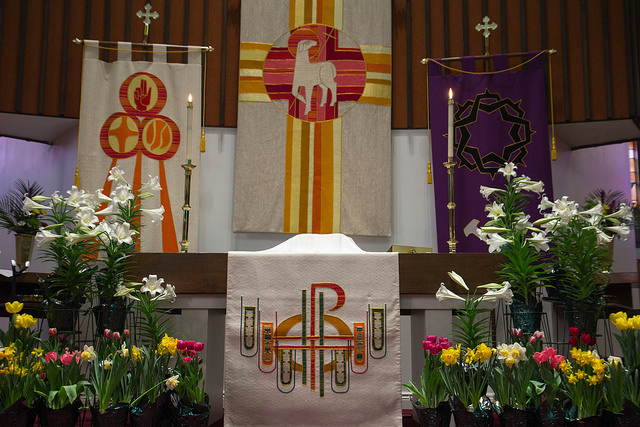One of the trends I’m discovering in my preaching and faith exploration involves using our imagination. Throughout the Bible, God invites us at specific points to imagine what comes next. Our first reading from Acts 2:14,36-41 is, I think, one of those points. Peter has finished his Pentecost sermon. He is preaching to a crowd filled with people from all over the world who are visiting Jerusalem. The people are hearing Peter’s words in their own language and are amazed at what they see. Peter’s words are also convicting. He tells them, in short, that “the people of God put God to death when God came to them” (Paraphrase borrowed from Professor Rolf Jacobson of Luther Seminary). For the people listening to Peter, this statement cuts them to the core. They feel like their souls and identity have been torn apart. They ask Peter, “what can they do?” We shouldn’t see this question as their way to try and get on God’s good side. The people listening to Peter are first and foremost recognizing who they are as human beings. The Spirit is revealing to them their identity and what people do when God shows up. The ones listening to Peter are now lost. They ask what they can do because they realize there is nothing they can do to fix their relationship with God. So Peter looks at them all and tells them to turn towards God and be baptized.
The reading from Acts says 3000 were baptized that day. Imagine the strain on the altar guild. Imagine how long baptizing 3000 people would take and where it might happen. The entire group could have left the city to find a river to be baptized in. The banks would be filled with people standing in dirt and mud, waiting for their turn. People leaving the water would be dripping wet. Their feet and legs would soon be dusty and covered in mud. Everyone there would carry the physical signs of baptism. And then, once the baptisms were over, they would be part of a new community. In verses we do not hear today, the 3000 devoted themselves to their new faith community. They sold their possessions and put everything into a common account. They shared their financial resources, making sure all were cared for. Listening to Peter, God’s people discovered who they are as human beings. They recognized what people do when God shows up. But, through the Spirit, God gave everyone a new imagination to live out God’s love wherever God takes them next.
Each week, I write a reflection on one of our scripture readings for the week. This is from Christ Lutheran Church’s Worship Bulletin for 3nd Sunday of Easter, 4/30/2017.

